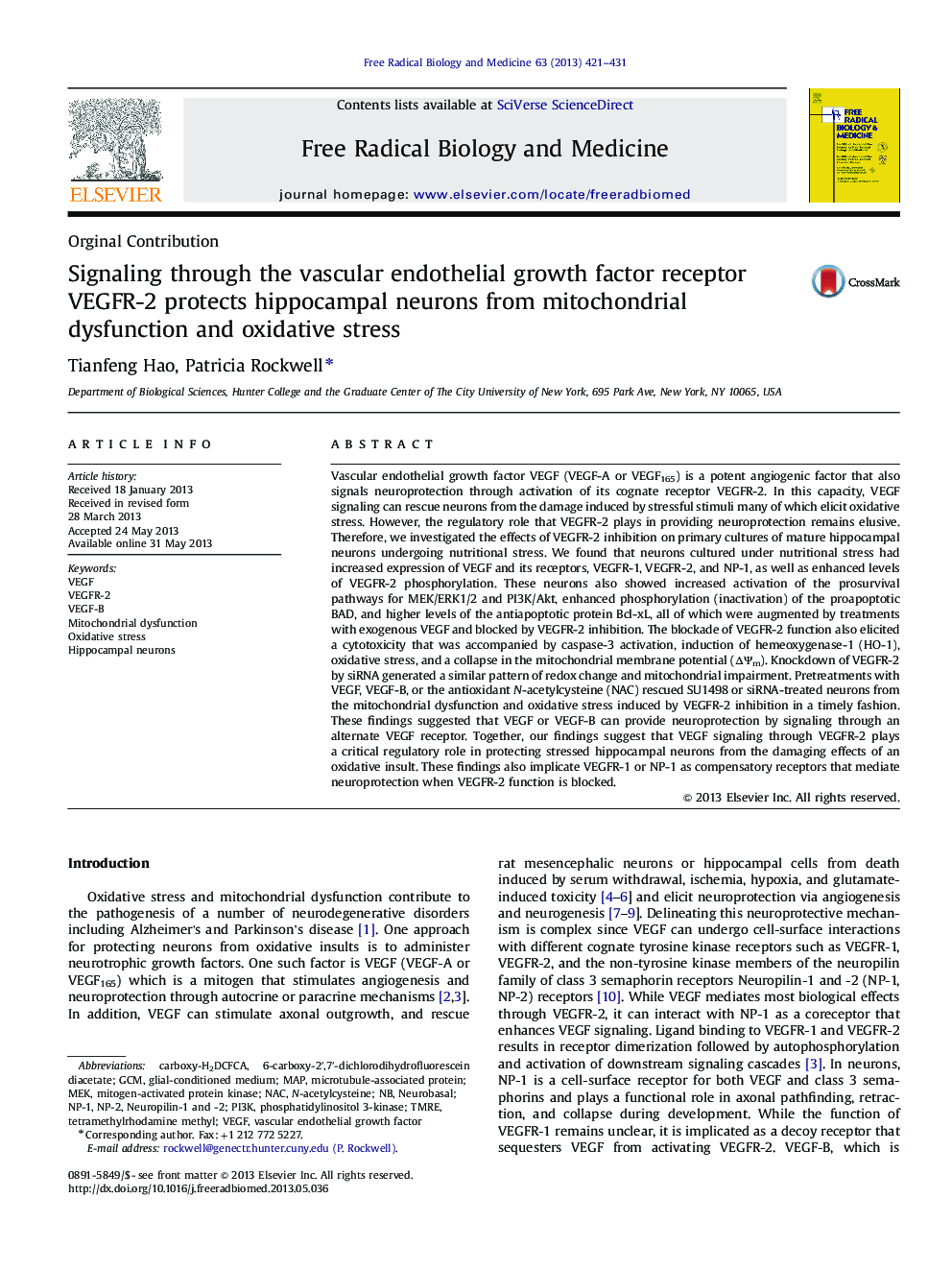| Article ID | Journal | Published Year | Pages | File Type |
|---|---|---|---|---|
| 8271360 | Free Radical Biology and Medicine | 2013 | 11 Pages |
Abstract
Vascular endothelial growth factor VEGF (VEGF-A or VEGF165) is a potent angiogenic factor that also signals neuroprotection through activation of its cognate receptor VEGFR-2. In this capacity, VEGF signaling can rescue neurons from the damage induced by stressful stimuli many of which elicit oxidative stress. However, the regulatory role that VEGFR-2 plays in providing neuroprotection remains elusive. Therefore, we investigated the effects of VEGFR-2 inhibition on primary cultures of mature hippocampal neurons undergoing nutritional stress. We found that neurons cultured under nutritional stress had increased expression of VEGF and its receptors, VEGFR-1, VEGFR-2, and NP-1, as well as enhanced levels of VEGFR-2 phosphorylation. These neurons also showed increased activation of the prosurvival pathways for MEK/ERK1/2 and PI3K/Akt, enhanced phosphorylation (inactivation) of the proapoptotic BAD, and higher levels of the antiapoptotic protein Bcl-xL, all of which were augmented by treatments with exogenous VEGF and blocked by VEGFR-2 inhibition. The blockade of VEGFR-2 function also elicited a cytotoxicity that was accompanied by caspase-3 activation, induction of hemeoxygenase-1 (HO-1), oxidative stress, and a collapse in the mitochondrial membrane potential (ÎΨm). Knockdown of VEGFR-2 by siRNA generated a similar pattern of redox change and mitochondrial impairment. Pretreatments with VEGF, VEGF-B, or the antioxidant N-acetylcysteine (NAC) rescued SU1498 or siRNA-treated neurons from the mitochondrial dysfunction and oxidative stress induced by VEGFR-2 inhibition in a timely fashion. These findings suggested that VEGF or VEGF-B can provide neuroprotection by signaling through an alternate VEGF receptor. Together, our findings suggest that VEGF signaling through VEGFR-2 plays a critical regulatory role in protecting stressed hippocampal neurons from the damaging effects of an oxidative insult. These findings also implicate VEGFR-1 or NP-1 as compensatory receptors that mediate neuroprotection when VEGFR-2 function is blocked.
Keywords
Related Topics
Life Sciences
Biochemistry, Genetics and Molecular Biology
Ageing
Authors
Tianfeng Hao, Patricia Rockwell,
